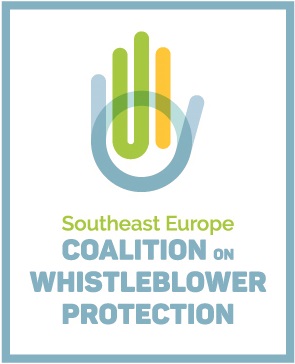- Two new reports released today as part of the Global Initiative’s ‘Infrastructure of Integrity’ series look at the phenomenon of ‘organized corruption’ in the Western Balkans and monitor implementation of the anti-corruption pledges that governments of the region made in the framework of the Berlin Process.
GENEVA, Switzerland – 3 May 2021: At the London Summit of the Berlin Process in 2018, governments of the Western Balkans pledged to intensify the fight against corruption. How successful have they been? A new report by the Global Initiative against Transnational Organized Crime (GI-TOC) entitled the Western Balkans Anti-Corruption Pledge Monitor lists the pledges that were made and tracks what progress has been made since 2019. This civil society-led report is based on analysis provided by anti-corruption experts from the six countries of the Western Balkans who examined corruption and its impact on governance in each country of the region and reviewed anti-corruption frameworks as well as government efforts to tackle corruption. It is one of the few, if only, comprehensive evaluations of the implementation of the 2018 Berlin Process anti-corruption pledges.
“Fighting corruption is clearly a priority for the European Union”, said author Suncana Roksandić who noted that the word ‘corruption’ is mentioned 88 times in the EU 2020 Communication. “Fighting corruption is also a priority for civil society in the Western Balkans, and hopefully also for the governments” said Roksandić.
A second report entitled Political Economy of Organized Corruption and Anti-Corruption looks at the factors that enable organized crime to flourish in the region and the impact that this has. It points out that while significant progress has been made in putting in place appropriate anti-corruption legislation, institutions and strategies, the effective use of these measures and bodies is too often lacking. The result is what the report calls ‘organized corruption’ – a symbiosis of organized crime, criminal methods and high-level corruption, which creates a crooked ecosystem that enriches and protects those with access to power.
“Organized corruption is not only about systemic illicit financial gains and undue influence in decision making but also about systemic ‘buying’ and ‘influencing’ of social support to gain or stay in positions of political and economic power” explained the lead author the report Uglješa (Ugi) Zvekić.
John Penrose MP, the United Kingdom Prime Minister’s Anti-Corruption Champion and Mark Shaw Director of the Global Initiative against Transnational Organized Crime welcomed the growing focus on anti-corruption under the auspices of the Berlin Process and said that “we hope that these reports will help inform delivery of ongoing and future anti-corruption initiatives, such as the Illicit Finance and Anti-Corruption Roadmap.” They said “these reports provide a good basis for systematic monitoring of the implementation of anti-corruption pledges. We believe that cooperation between civil society and governments, as well as international cooperation, will strengthen our armour against corruption.”
The report provides recommendations on how to transform a culture of crime and corruption into a climate of integrity in order to ensure that the law is equal to all. These and the key findings of the reports will be presented at an on-line panel discussion on 6 May at 14:00. The reports will be introduced by the authors Uglješa (Ugi) Zvekić and Suncana Roksandić, commented upon by an international expert panel, and then discussed with the audience.
About the Global Initiative
“The Global Initiative Against Transnational Organized Crime is a network of professionals working on the frontlines of the fight against the illicit economy and criminal actors. Through a network of global civil society observatories on the illicit economy, we monitor evolving trends and work to build the evidence basis for policy action, disseminate the expertise of our Network and catalyze multisectoral and holistic responses across a range of crime types. With the Global Initiative’s Resilience Fund, we support community activists and local NGOs working in areas where crime governance is critically undermining people’s safety, security and life chances.“





